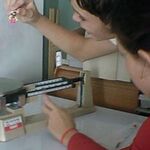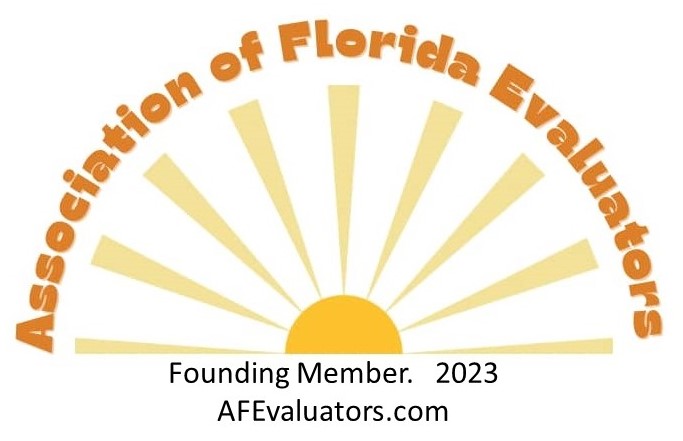|
Prom. Graduation photos. Scholarships. Diploma. Credits. Transcripts. College Admissions. Homeschooling high school is intimidating for a lot of reasons. And yet homeschooling high school can be a wonderful thing. Homeschooling can allow an education customized to the needs and direction of your teen and better prepare that teen for life after high school graduation than most "one-size-fits-all" school programs can. Our kids have always been homeschooled yet our oldest ones went to prom, have graduation photos, won scholarships, have diplomas, got into colleges, and more. They participated in Debate Club, Yearbook, Talent Shows, co-op classes, and more. While some of those options have become harder to find during the pandemic, they are still out there for those who really want them. Our teens--like many homeschoolers--graduated high school with college credit earned (at no cost to us--paid through our tax dollars) through Florida's dual enrollment program. While they took a few FLVS Flex courses, most of the rest of their classes were set up by us using a variety of materials--some published high school curriculum and others a variety of materials that weren't designed as curriculum. We documented what was done and their courses were accepted by every college for which they finished the application process. In addition, I've advised a number of parents on documentation to help their teens get admitted not only to Florida colleges but even well-respected out-of-state schools like Stanford. Having documents in order is key to having all your child's classes accepted by a college or university. On this page, we share some of our tips and information for parents and students trying to navigate homeschooling the high school years. We do offer consultations for those in need of more detailed help in planning their specific child's high school program. Cheryl Trzasko Feb. 2021 |
Documentation
The only documents required by Florida law to graduate from high school as a home education student are a Letter of Termination and a final evaluation.
But wise parents will make sure their high school students have other documents that the student may need later. These should include a transcript, course descriptions, and, eventually, a diploma and an affidavit of completion. Documentation of community service hours can also be helpful in earning scholarships for college. Putting these documents together is usually easier if done as the student goes through high school (or even starting in middle school) rather than waiting until graduation day. After your child has graduated, perhaps even with the Letter of Termination, ask the Home Education Liaison for an official letter verifying that your child was legally home educated and giving the date range. Districts are not required to keep home education records more than 4 years and such a letter can be useful even after four years. Course Descriptions
should include a paragraph or more for each class taken for high school credit--whether taught at home by a parent or tutor, taken at a public or private school, taken in middle school, etc. This document should list resources and materials used for learning, topics studied, projects done, and any other information that could help a college, employer, or other interested party understand the quality of education received.
For more information click here. Transcripts
The high school transcript is a simple summary of the courses taken for high school credit. Ideally a transcript should be one page or at most two.
Parents can type transcripts for their own children or use some of the templates and/or services available online. Some services even allow transcripts to be sent through the same electronic clearinghouse as many schools use which adds a look of professionalism to the document. For more information click here. Diploma
Parents running a home education program have the right to issue a diploma when the child has met their graduation requirements.
Some type their own using a certificate template on their word processor. Others purchase professionally-printed ones. For more information click here. Affidavit of Completion
An Affidavit of Completion, when signed by a parent and notarized, is legal proof of high school graduation for Florida colleges.
Read more here. Letter of Termination
Final Evaluation
An evaluation must be submitted with the letter of termination (or within 30 days of it).
This requirement, which took effect in July 2018, was meant to enable the home education office to be able to verify to a college or other organization (including the military or a potential employer) that the student successfully finished their home education program. This final evaluation has the same requirements as previous evaluations. (See question 3f in the Office of Choice's official FAQ.) Community Service
Community service is NOT required for graduation from a home education program. On the other hand, community service is not only good for the soul and the community, but can also help with college scholarships.
Documentation of community service for the last four years of a child's education should be kept. It can be useful in pursuing scholarships including the Bright Futures scholarship or other programs. For more information, read herecommunity-service-documentation.html. |
Accreditation? Official programs? College-worthy materials? What should we use?
Does accreditation matter?
In most cases, no, accreditation doesn't matter.
Florida law does NOT require any particular curriculum. Parents may use any materials at any level that works for their children if home educating--even at the high school level. Situations where accreditation can matter include: 1.Umbrella schools--which may be viewed as "diploma mills" by colleges or other educational programs. 2. Foreign language--or a college may require that the classes be retaken at the college level. 3. For those in highly competitive sports who plan to continue sports in college--though organizations such as the NCAA do have lists of acceptable materials that parents can use for their approval. For more information, read here. What books or materials should be used?
Even in high school, you can use any books and materials you wish. You may use textbooks or workbooks or websites or any other options. If your child struggles with a subject, sometimes it's better to go with materials meant for lower grades to get a better foundation in the subject. If your child needs a challenge, try more advanced materials. Hands-on materials can be great.
In the end, though, what tends to work best with high school students is materials or methods or projects that they helped choose. Most appreciate materials related to their goals in life--so ones that will help them towards a career can be great. If your child doesn't have a career in mind, studying career options, how careers differ (not just in the obvious but in terms of benefits and life style and pay structure), and skills and education needed may help your teen figure out a direction. Involving the teen will lessen the battle over learning and make the teen more invested in doing well. More information on curriculum. How are credits determined?
There are several options for determining high school credits.
1. Track hours of instruction/learning and assign a credit after at least 120 hours (or a half credit after 60 hours). 2. Assign a credit when most of a textbook designed for a year-long high school class is completed. (Similarly, if the student covers most of the topics in a high school scope and sequence list for a year-long course is covered.) 3. Assign a credit if a student's test (such as an AP exam or CLEP test) shows mastery of the material 4. Earn credit elsewhere and use that source's information. Such as taking courses through FLVS or a local community college and following their lead on granting credits. See here for more details. What classes are required for high school graduation?
Whichever ones you decide are necessary!
Some parents choose to follow the public school's graduation requirements. Others choose the admissions requirements for a college or trade program as their high school graduation requirements. Some opt for whatever is needed to get their child ready for a career or to run a business or to be as independent as possible. Some want a short-cut to graduation and use a passing score on a practice GED test as proof that a student is ready to graduate. The choice is up to the parent. Is there a high school graduation ceremony for homeschoolers?
If you want a large ceremony, FPEA, a statewide homeschool support group, has hosted a huge ceremony each year for decades. Held in Orlando, usually on the Sunday afternoon of Memorial Day weekend, the event includes an optional dinner-dance the night before. This graduation ceremony often included over 300 homeschool graduates in the days before so many large group events shut down. Signups usually begin in January and end in late March or whenever their venue is full.
Local homeschool support groups have sometimes hosted smaller ceremonies as well. And some of us have planned our own ceremonies with family and friends. The choice is up to you. How is college credit earned in high school?
Homeschool students can earn college credit while in high school via dual enrollment college classes, or AP or CLEP exams.
Dual enrollment classes are college classes taken in high school. While parents can pay for classes at a private college, those taken through a public college are free to home education students who meet the college's testing requirements; many home education students have earned a free two-year AA degree before high school graduation using dual enrollment classes. Parents can pay for AP or CLEP exams which can possibly earn their students college credit if the scores are high enough and transferable to the college or university of their choice. Read here for more details on how this works in Florida. How do homeschool students sign up for the SAT, ACT, AP or other exams?
Signing up for testing depends on the test.
Registration for the SAT and ACT can be done online. Usually, registration for the PSAT or AP exams must be done directly through a local public school; the district is required to provide information about testing dates and locations and registration deadlines but contacting your local Home Education Liaison may be necessary to get the information. Contacting them at the beginning of the school year is best to be sure deadlines are met. Will college credit earned in high school transfer?
Maybe.
Credits earned from dual enrollment may or may not transfer. Those for standard entry-level courses or electives are more likely to transfer than those in a student's intended major. If a student earns an AA from a Florida college first and then transfers, the credits should all transfer to another Florida college. If going to an out-of-state or private college, credits may not transfer--especially those in the student's field of study. Check with the institution you are planning to enroll in or try this website to check. Can bad grades be fixed?
Some students, especially those who came out of a bad school experience, may start homeschooling with a history that includes some bad grades. If the problems were only in ninth and tenth grades and the student has moved on to more advanced courses and does well, colleges may actually see this as a positive thing, especially if the student writes an essay explaining what the issue was and how the student overcame it. This can be evidence of proven success and overcoming a bad background that can help a college or university look good. Colleges will not be as willing to accept a student with failing grades in 11th or 12th grades, though, as they expect students to be less mature in 9th and 10th grades, but by 11th grade, they want to see a student on his or her way to doing well in school.
One option for fixing such problems is credit recovery. Public schools do this and homeschools may, too. Credit recovery means that the student retakes the class, and the new grade is used to replace the previous lower grade. If a number of classes have to be repeated, it may mean delaying graduation a year or two, but the better foundation in academics is likely to help the student get through college and in adulthood, few people will ask (or care) how old the student was at graduation. Another option for credit recovery could be to use tests such as the CLEP tests to show that the student has learned material and deserves a better grade. And use that new grade on his or her transcript. Likewise, if the student wants to gain credits for classes not taken, without having to sit through a class that he or she has already learned about, CLEP or other tests can be used to prove that the student should have credit for a particular class. Sometimes, a student may be far behind in earned credits but knows the material and wants to get to graduation. Or the student may just be ready to graduate and move on to college (and doesn't want to use dual enrollment or isn't eligible for it). Taking and passing a GED practice test can be used as proof for granting a homeschool diploma and allowing the student to skip taking classes. Taking the actual GED test can be an option, too, ending with a state-issued diploma, though a diploma (even a homeschool one) is often a better option than getting a GED. Some Florida home education laws that apply especially to those in high school:
(4) Home education students may participate in interscholastic extracurricular student activities in accordance with the provisions of s. 1006.15. (5) Home education students may participate in the Bright Futures Scholarship Program in accordance with the provisions of ss. 1009.53-1009.538. (6) Home education students may participate in dual enrollment programs in accordance with ss. 1007.27(4) and 1007.271(13). (7) Home education students are eligible for admission to Florida College System institutions in accordance with the provisions of s. 1007.263. (8) Home education students are eligible for admission to state universities in accordance with the policies and guidelines of the Board of Governors. From: leg.state.fl.us |
The Trzasko Family
Cheryl & Mark Trzasko
(pronounced Trahs-koh) have homeschooled their own from the start. Two have graduated high school as homeschoolers with college credit earned already. One is now a teacher, and the other will soon finish serving our country. Our youngest are still learning at home. Cheryl was homeschooled for part of her early education. We are passionate about helping others homeschool and protecting their rights. Discover us on social media!We offer a free support group on Facebook for those who want more information.(This is not for advertising.) Answer the questions fully to join. (c) 2024
No. We do NOT want unsolicited website help. |
|












